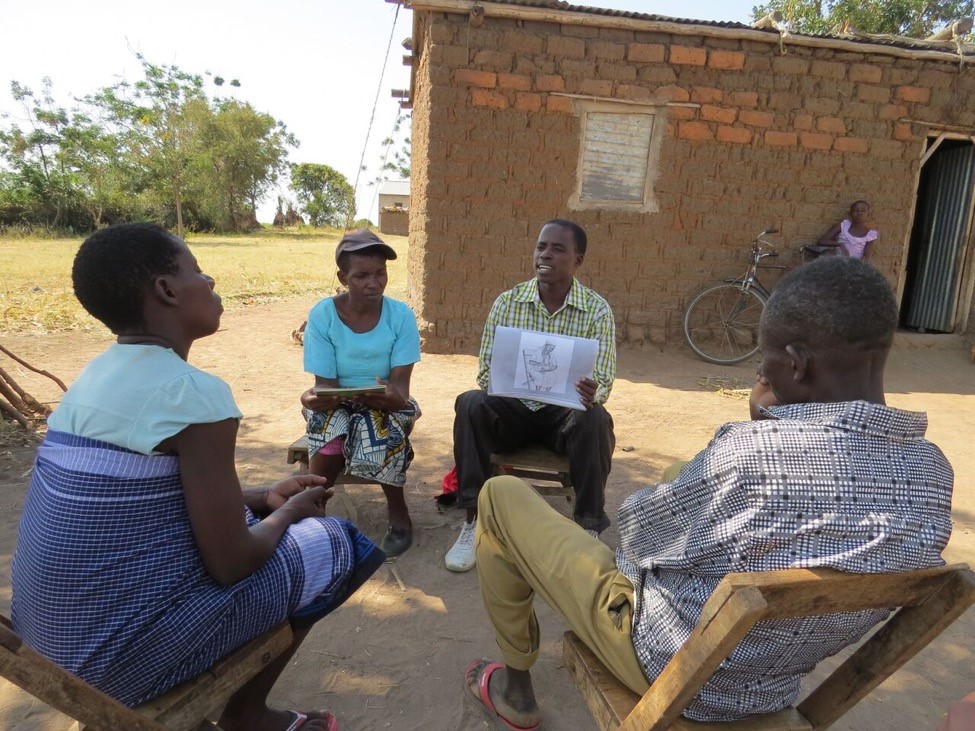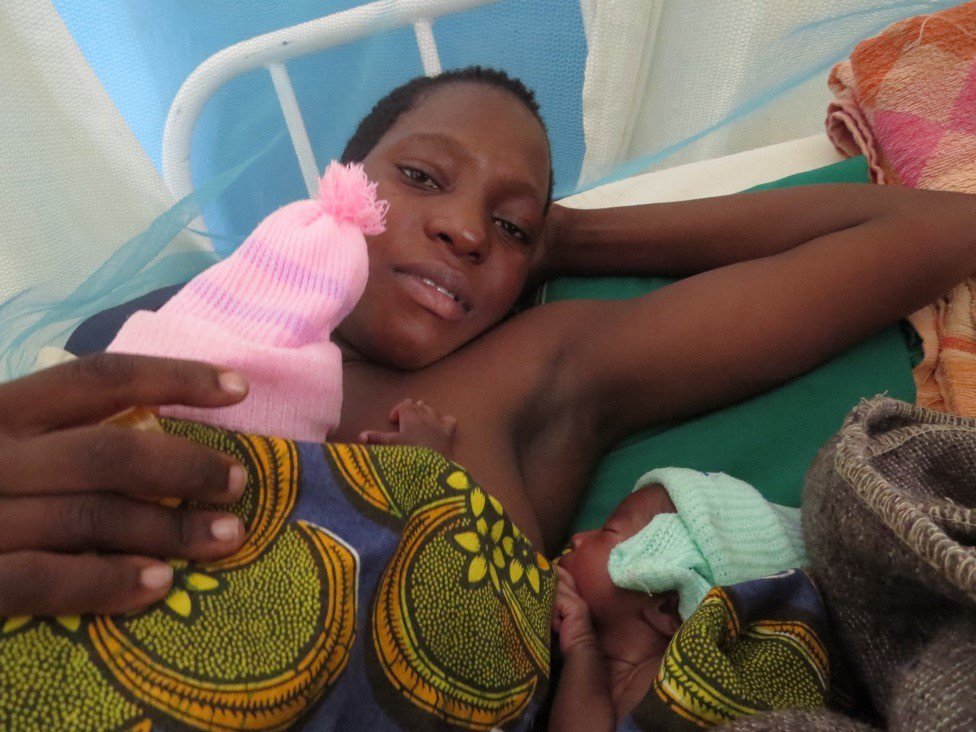Zuhura Mfungo placed one of her twins on her chest. She carefully positioned the underweight newborn between her breasts, turned the baby’s head to one side, and wrapped the infant with a warm blanket. She checked to ensure there was good skin-to-skin contact and the baby was breathing with ease.
Zuhura was practicing Kangaroo Mother Care (KMC), a technique she learned from the nurses at Murangi Health Center to keep her babies – born 9 weeks premature and each less than 4 lbs – healthy. The low-cost, highly effective method for preterm and low-birth weight babies provides warmth and easy access to breastfeeding, while promoting faster growth and weight gain.
Lying quietly next to Zuhura was her second twin, a boy. Each newborn needed KMC and, having no relative nearby to assist her, Zuhura alternated between swaddling one twin and intermittently providing KMC to the other. Later – as she gained confidence and with the support of the nursing staff – she was able to place both twins in the KMC position on her chest simultaneously.
Zuhura and her twins may not have found themselves here, thriving, if not for USAID’s flagship Maternal Child Survival Program (MCSP). The Program is working in Mara and other regions in Tanzania to expand access to high-quality maternal, newborn and child health interventions.
Without this help, Zuhura’s twins were at risk of adding to the alarmingly high number of preterm and low birth weight newborn deaths. Globally, babies with these conditions contribute to 60-80% of all causes of newborn deaths. And in Tanzania, about one-third of the estimated 45,000 annual newborn deaths are due to complications related to prematurity and low birth weight.
In Mara region, only one-third (33%) of pregnant women deliver at health facilities. This is well below Tanzania’s national average of 51%, and lower than the nation’s target of 80% of deliveries by skilled birth attendant by 2015. Most women in Mara deliver as Zuhara did – with the assistance of a traditional birth attendant (TBA) or untrained friends and relatives. Others deliver on their own, without any assistance.
Thankfully, MCSP supports a community health worker component in Tanzania. Working with the Ministry of Health and Social Welfare and the Mara regional administration, the Program is reducing maternal and newborn deaths in northern Tanzania.
If not for the efforts of Obeid Joseph, an MCSP-trained community health worker who lives in the same village as Zuhura, she may not have known about KMC and where to receive these services. Household visits are part of Obeid’s usual routine and he had consistently visited the 23-year-old mother since her fourth month of pregnancy. This was Zuhura’s third pregnancy: the first ended in miscarriage; for the second, she delivered at home with the assistance of a TBA.

Community health workers like Obeid are integral to increasing the number of women delivering with skilled care and in facilities, a critical intervention for ending preventable maternal and newborn deaths. Their efforts include mapping 252 villages – noting women of reproductive age, pregnant women, infants, and children under five years of age – thereby providing key health information and supporting a continuum of care from the community to the health facility.
In the case of Zuhura, Obeid’s training made him realize something was not right with her. “She didn’t look okay,” Obeid recalled. She appeared sick and feverish during his home visit, he said, and was complaining of abdominal discomfort.
“I advised [her and her husband] to immediately go to the health facility for a check-up,” Obeid said. On arrival, Zuhura tested positive for malaria and was immediately hospitalized. After three days at Murangi Health Center, her condition improved.
“I was feeling okay and never did I expect to give birth before my [due] date,” she said. “But then I started feeling some pain below the belly, which were followed by contractions. Obeid’s visits are the ones that pushed me to start going to the health clinic.”
A few hours later, Zuhura was the proud mother of twins and learning from the midwives how to swaddle her tiny son and daughter and practice KMC.
As she gave much needed warmth to her premature twins, Obeid was already back in the village visiting families and further driving MCSP’s goal to end preventable maternal and newborn deaths in this region.

